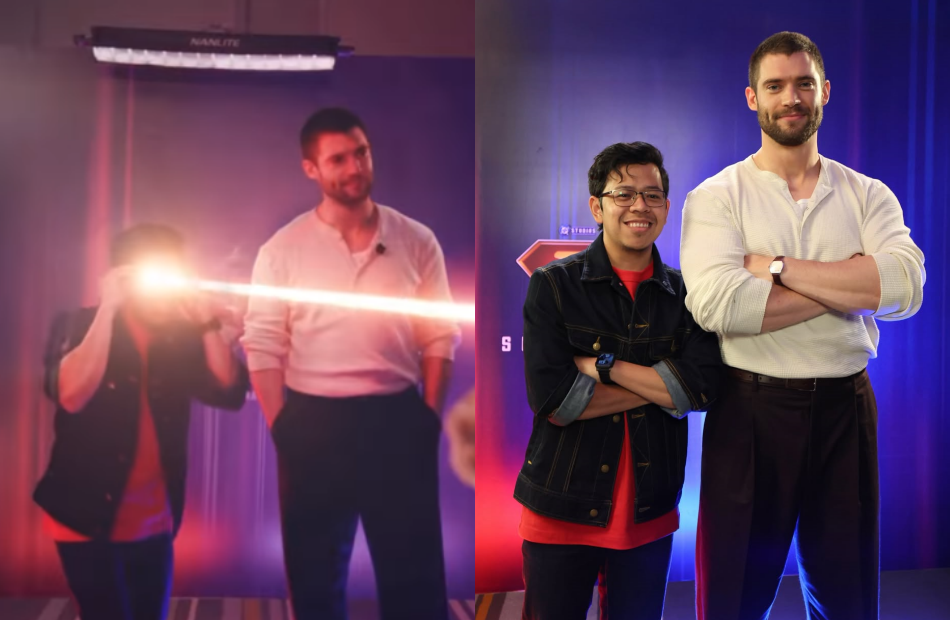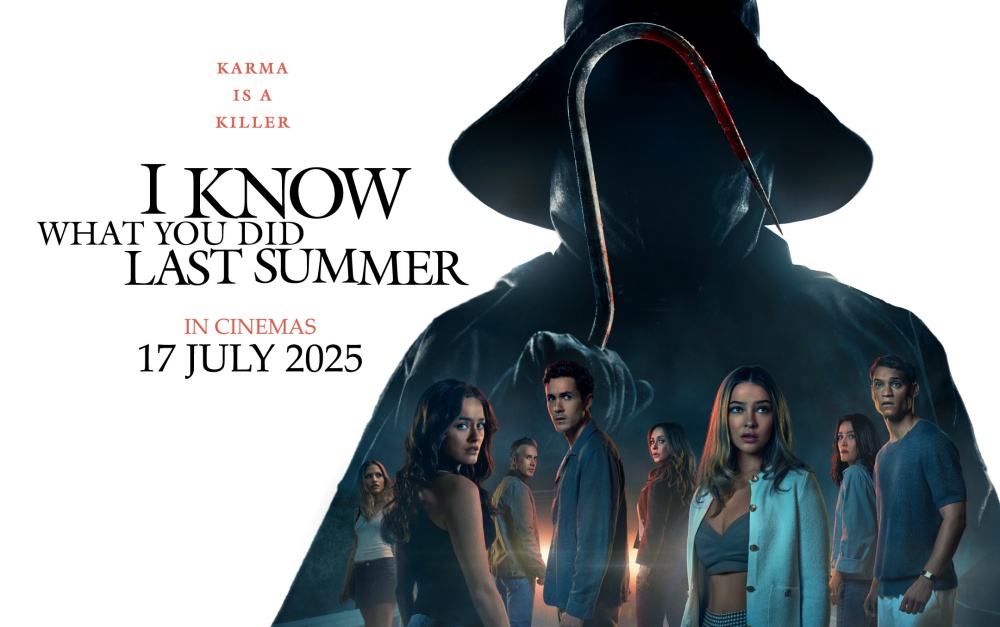Sometimes the best revenge stories aren’t about guns or guts—they’re about brains. We’ve seen on-screen personalities punch their way through grief, but what if the real knockout move was a keystroke? “The Amateur” spins a familiar thriller setup with a clever twist: this time, the weapon of choice is pure brainpower. It’s not about flexing muscles—it’s about outsmarting everyone in the room.
Yes, “The Amateur” is a thriller directed by James Hawes and penned by Ken Nolan and Gary Spinelli, based on Robert Littell’s 1981 novel of the same name. While it did get adapted before, this time around, we get a moodier-coded rendition starring Rami Malek, Rachel Brosnahan, Caitríona Balfe, Jon Bernthal, Michael Stuhlbarg, Holt McCallany, Julianne Nicholson, Adrian Martinez, Danny Sapani, and Laurence Fishburne.
Right off the bat, “The Amateur” paints a picture-perfect life for our leading man, Charles Heller (Rami Malek), and his beloved Sarah (Rachel Brosnahan). They’re living the romantic dream—sunlight-drenched mornings, cozy barn house serenity, and that kind of quiet, domestic bliss. It’s a good life. Oh, hoho, it’s one that we don’t want to jinx.
Oh yes, did we mention that he’s good with the coffee machine too?
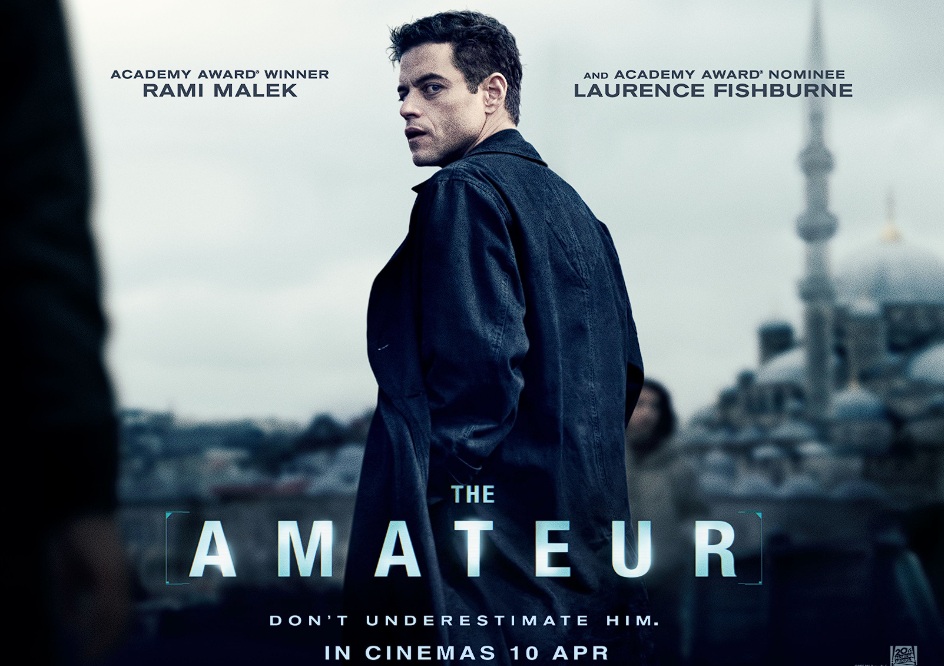
Soon, we’re given an in on his day job, and the next scene drops us straight into Heller’s other life: that of a tech-savvy analyst stationed in the bowels of CIA headquarters. He’s not out in the field dodging bullets—no, Charlie’s battles are fought in code, not combat. He’s hunched over a monitor, dissecting encrypted files, existing as one of the agency’s most valuable behind-the-scenes assets.
This isn’t the glamorous spy life we usually see on screen—it’s beige walls, humming servers, and fluorescent lighting. But make no mistake: Charlie is the real deal. The stuff he’s cooking up down there? That’s the tech the entire agency uses.
Hold up, come to think of it… Rami Malek, hunched over a keyboard, brooding in a dimly lit office? It’s as if Elliot Alderson dusted off his hoodie and got a government job. Welcome back, king.
But just as we’re getting comfortable, tragedy strikes. A terrorist attack erupts in London, shattering the illusion. Sarah gets caught in the chaos, taken hostage in a moment that feels ripped from a nightmare. And then, just like that, she’s gone. The rescue goes sideways, and what’s left is a quiet devastation.
Heller’s world doesn’t just crack; it implodes. The softness, the sunlight, the love—it’s all snatched away in an instant. What follows is grief, raw and hollow, and a searing need for answers. Something colder, angrier, and far more dangerous begins to take shape.
Naturally, he expects the CIA to act. To do something. But instead, he’s met with radio silence and bureaucratic shrugs. So what does our grieving genius do? He cracks open those encrypted agency files, digs up a few skeletons the higher ups would rather keep buried—shady cover-up ops, the kind that don’t look good in daylight—and uses them as leverage.

Yep, blackmail. Clean, sharp, and ballsy.
He threatens to go public with the intel unless they give him what he wants: authorization to train like one of their own and track down the people responsible for Sarah’s death. It’s a desperate move, but one that turns heads. And just like that, Heller trades in his analyst desk for combat boots, stepping into a world he’s only ever observed from behind a screen.
They agree but when they realise he’s been toying with them, the table is flipped and he goes rogue. What follows is a globe-trotting, code-cracking, lock-picking manhunt fueled by grief, genius, and a whole lot of justified rage. Heller, with the bare minimum training, becomes the wildcard in a game of professionals, operatives, and bureaucratic cold shoulders.
But here’s the thing—we’ve seen this movie before. A man loses his wife, becomes sad and vengeful, and suddenly the world becomes his punching bag.
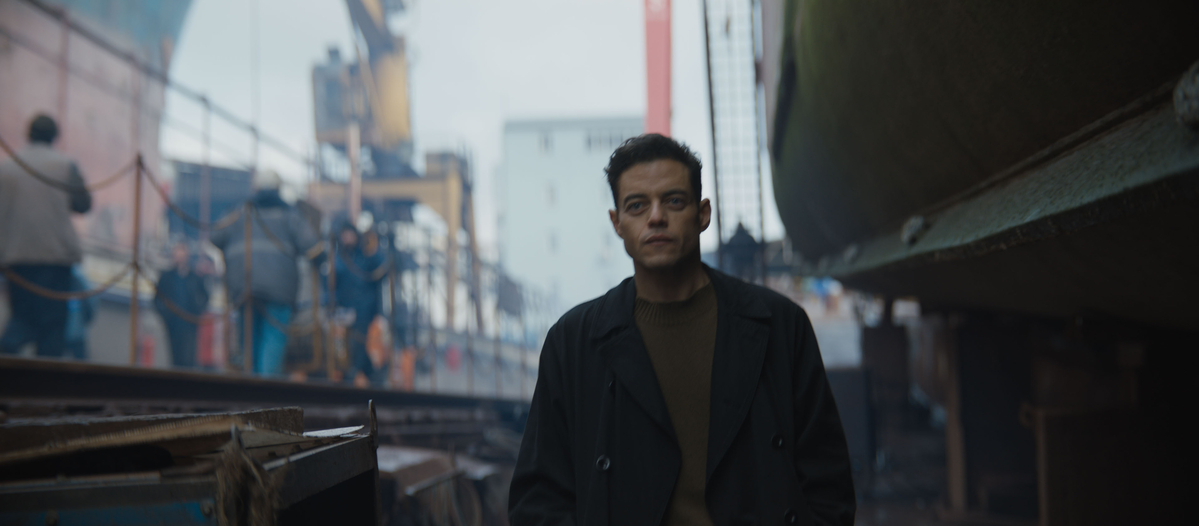
From John Wick mourning his dog (and, yes, his wife) to The Punisher laying waste to every bad guy with a pulse, this genre is a well-oiled revenge machine. The formula? Take a grieving man, hand him a tragic backstory and a weapon, and then stand back as he mows through goons like he’s got unlimited ammo and emotional suppression issues.
“The Amateur” taps into the trope, but this time, Charlie isn’t a superspy or a hardened ex-hitman; he’s a normal tech analyst who has never fought in combat. The amateur in this sense is one who has to use his wits and his access to digital tools to take down his enemies. Rather than relying on physical combat or elaborate fight scenes, Charlie’s method is all about hacking, cracking codes, and leveraging the power of information. Instead of fists, he uses his mind.
Instead of the usual gunfights and hand-to-hand combat, we’re offered a story where intelligence is the weapon. A high-IQ tech whiz with a vendetta, taking on terrorists with nothing but his logic, his coding skills, and a few IP addresses. The film makes this clear when Charlie Googles lock-picking tutorials, watches a YouTube video, and then nails it on his first try—showing us how far his intelligence and quick adaptability can take him.
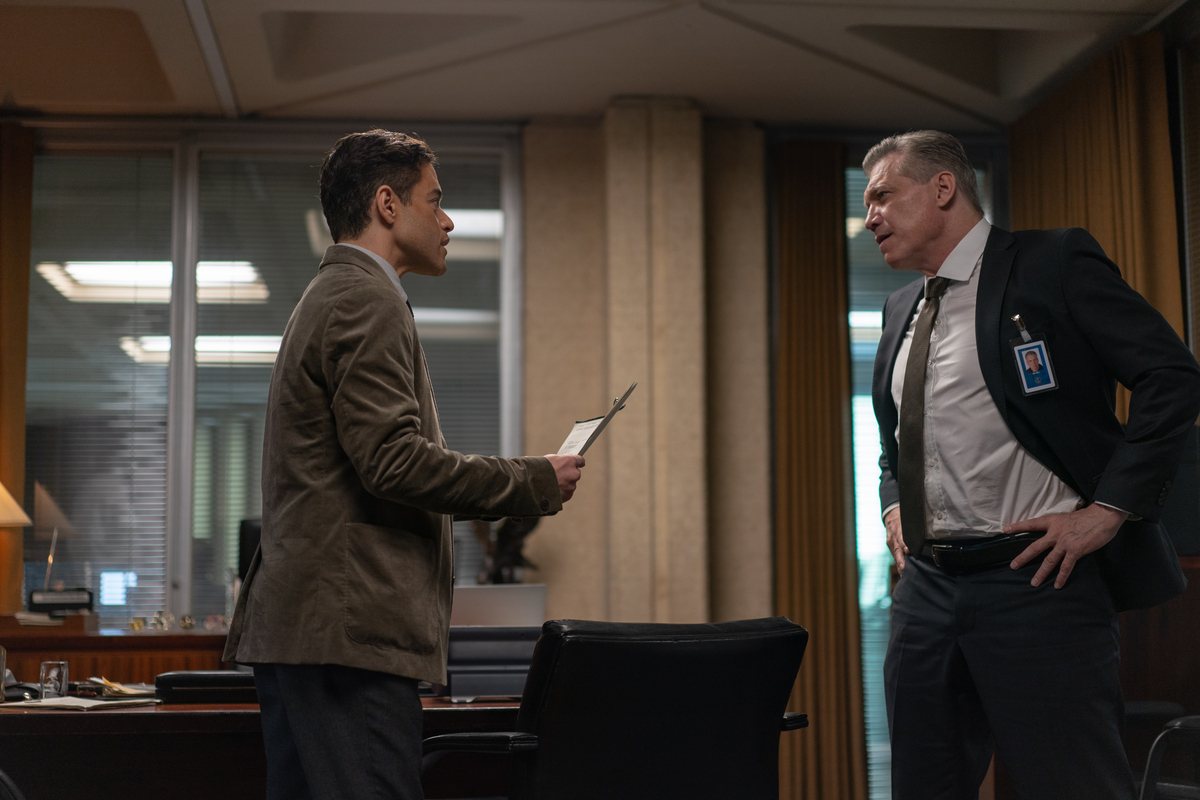
In an art imitates memes moment, Charlie even channels the popular streamer Rainbolt when he deduces the location of a target by analyzing a photograph—pinpointing clues based on the sun’s position, the spacing of vegetation, and other natural details. It’s an impressive, intellectual way to move the plot forward, and a nod to the idea that Charlie is using his brain to outsmart the system.
However, this unique angle begins to lose its impact when Charlie’s tech-savvy approach becomes the only tool in his arsenal. If he’s always one step ahead, outsmarting every obstacle without breaking a sweat, the tension starts to feel thin. The film’s reliance on this method for survival ends up diminishing the stakes, making the narrative feel more like checkboxes being ticked rather than a real fight for survival.
While the concept of a nerdy revenge hero is fresh, the film stumbles with pacing issues and weak character development. Instead of fully embracing the new territory it’s carving out, “The Amateur” trips over its own ambition, never fully committing to a unique take on the genre.
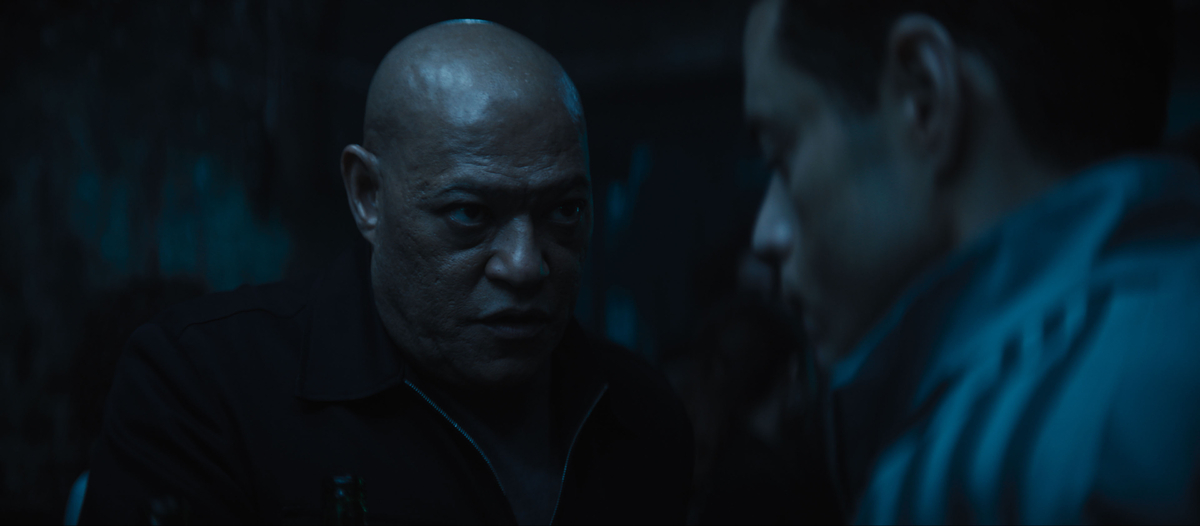
The main grievance we have is that the tension in this film feels artificial. The pacing is off. The first act moves at a breakneck speed—almost too fast, but it’s because of how many cuts it has. It’s like the movie is scared you’ll get bored before the plot kicks in.
But then… once it does? Everything slows way down. The central act drags its feet, attempting to shift gears into a more emotional, introspective space, but because the setup was rushed, we’re not emotionally invested enough to care. It’s like being asked to cry at a funeral for someone we met ten minutes ago.
The editing doesn’t help. There are baffling scene transitions—cutting from an office to a parking lot only to return to the same office, offering no new insight or character growth. It feels like filler designed to feign urgency. Instead of building actual tension, it creates a murky rhythm, one that confuses momentum for substance.
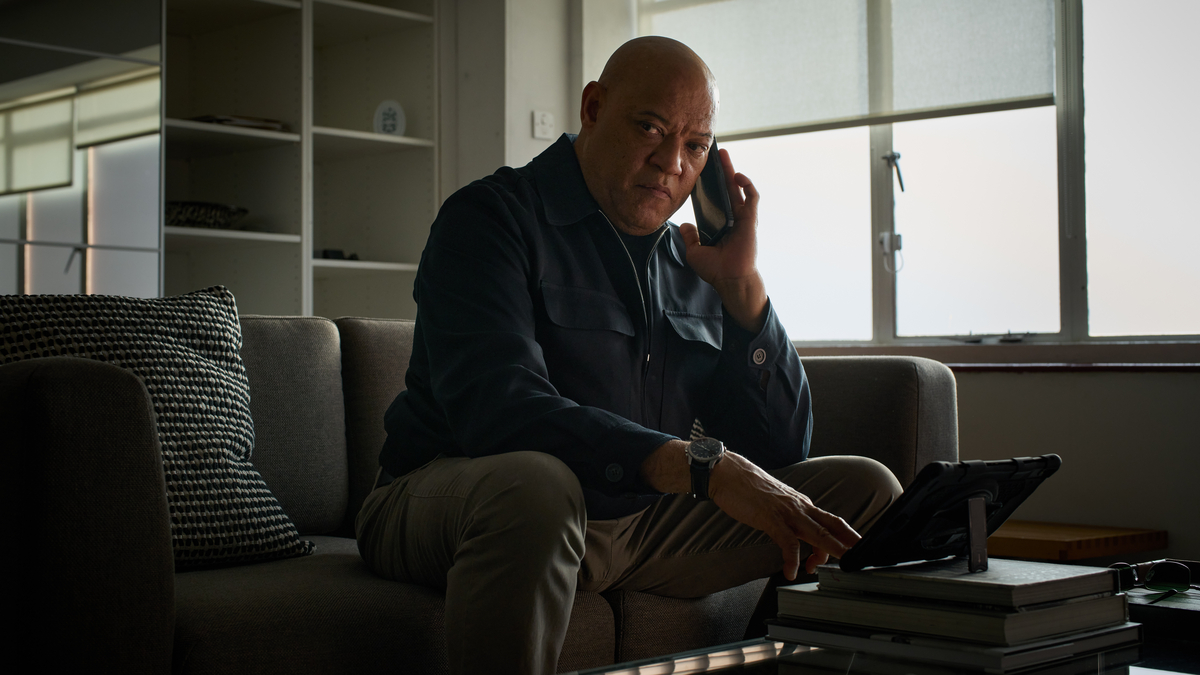
When it comes to performances, Rami Malek delivers his signature quiet intensity, offering a portrayal of Charlie Heller that’s solid but rarely electrifying. His trademark bug-eyed awareness adds a layer of tension, but there’s a sense that he’s being held back by the script. At times, it feels like the character isn’t fully fleshed out, and Malek doesn’t always get the chance to shine on his own. However, with certain scene partners, particularly Laurence Fishburne, there’s a noticeable shift in his performance, where he seems to elevate.
Fishburne plays Robert Henderson, a corporal tasked with training Charlie in gun combat. However, Henderson’s role goes beyond just physical preparation; he serves as a mentor, teaching Charlie important lessons about the emotional and psychological toll of seeking revenge. Henderson’s wisdom and guidance offer the film its most grounded and heartfelt moments, as he helps Charlie understand that taking lives and seeking justice won’t be as easy or as clean as he might expect.
Even later on, when Henderson is tasked with finding Heller, it’s clear that his intention is not to kill but to reason with him, to bring him back to some semblance of humanity. This dynamic adds a layer of complexity, showcasing the internal struggle of a man who doesn’t want to see this talented analyst consumed by a darker half.
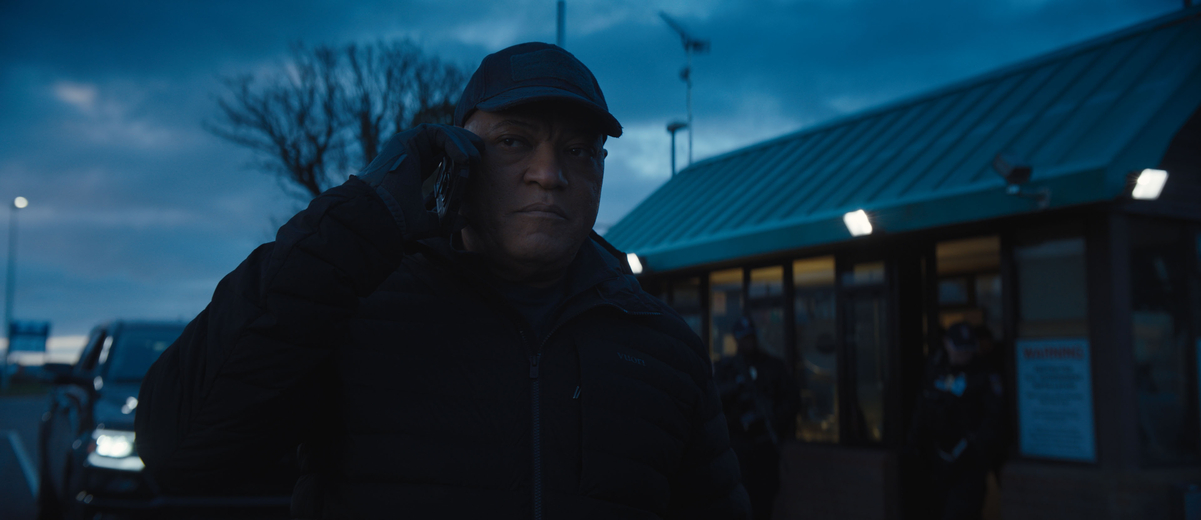
There’s also Inquiline, a mysterious presence who first contacts Charlie through an encrypted voice channel. Their initial exchanges are cold and utilitarian, but over time, a mutual rapport develops, built on a healthy dose of distrust. Eventually, Inquiline steps out of the shadows to assist Charlie in more direct ways. Is it impactful? Not especially. This individual is moved off the chessboard at one point, and the relationship never quite reaches the emotional or narrative depth it seems to be aiming for.
Soon-to-be Lois Lane, Rachel Brosnahan, does well in her brief scenes, bringing warmth and radiance to the role of Sarah. Even though her character is fridged, Brosnahan’s performance does leave somewhat of an impact. She exudes a quiet, comforting presence that makes her character’s loss more profound. As Heller’s emotional anchor, she represents the life he’s fighting to get back, and in a sense, she becomes a ghost in his mind, haunting him throughout his journey.
And oh- somehow… there’s Jon Bernthal—did we mention that he’s in the movie? Because let us tell you something! Jon pops up early, disappears completely, and then struts in at the end like he owns the place or something. There’s a throwaway line about Charlie saving him near the beginning, but it never pays off because the dynamic does not necessarily make sense. And Jon Bernthal just leaves after the second encounter—probably to film “Daredevil: Born Again” Season 2? Yeah, this was such a waste of his role.

The film desperately needed a proper foil to Heller’s braininess, or someone to really keep him in check. Someone who could outmatch or at least challenge him. Instead, he waltzes through obstacles with too much plot armor and too little consequence. The only time things feel remotely dangerous is during the final showdown—and even then, our guy walks away without a scratch. Not even a dramatic limp? Come on, fellas. Even the legendary John Wick, who bulldozed through dozens, almost died at the end.
While we don’t necessarily wish Charlie to endure suffering, the emotional weight of his journey would have been far more impactful if the film had allowed him to truly confront his grief, pain, and limitations. Yes, the movie does touch on these aspects, but it doesn’t quite give them the time or space to resonate deeply with the audience. We get glimpses of Charlie’s internal struggle, but they feel rushed, almost like they’re just passing moments rather than emotional beats that could anchor the film.
Had the film allowed us to marinate in his grief a bit longer, really let us feel that weight alongside him, there would have been more impact in the final showdown or the moments of retribution. Without fully grappling with the grief and loss that drive his actions, it’s harder for us to empathize with him. Instead of seeing Charlie as someone whose pain has shaped his journey, we’re left with a character who feels more reactive than reflective, which makes it harder to connect with him on a deeper level.
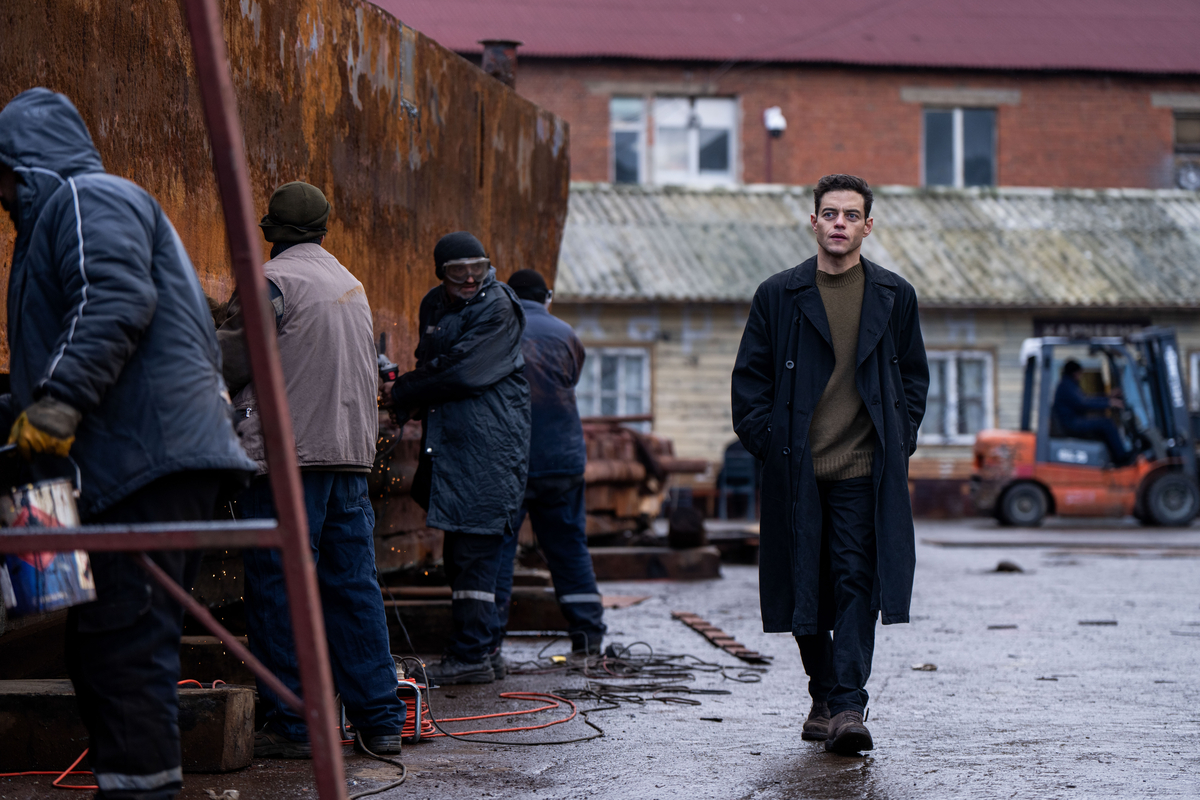
There’s certainly potential buried in “The Amateur”. A smart revenge thriller with a hacker twist could have offered something fresh and gripping, combining cerebral tech-savvy problem-solving with high-stakes action. Yet, the film plays it too safe. It tries to balance being a gritty emotional rollercoaster, a slick espionage thriller, and a character study, but it never fully commits to any of those elements. The result is a movie that lacks the depth or intensity needed to truly stand out.
Bottom line? The movie is mid-tier—neither awful nor exceptional, just somewhere in the middle. It flirts with the idea of being a ‘Hackerman Bourne,’ but it doesn’t go all-in on that concept. With a tighter script, more compelling character dynamics, and a stronger voice, this could have been a breakout film. Instead, it settles into a two-hour experience that’s ultimately forgettable.
A bit of trimming, especially cutting it down to around 100 minutes, would have helped. More time for character development, an actual adversary who challenges Charlie, and some sharper focus on the emotional stakes could have transformed “The Amateur” into a sleeper hit. As it stands, it’s just another disposable spy thriller that will likely fade from memory once the credits roll.

“The Amateur” will be cracking the code in cinemas on 10 April 2025.
The Review
"The Amateur"
"The Amateur" flirts with fresh territory by making its hero a tech-savvy, grief-stricken analyst instead of the usual bruiser, but ultimately fumbles the execution. Rami Malek delivers a solid performance, yet the film's overreliance on tech tricks and its failure to fully explore Charlie's emotional journey leave the stakes feeling flat. It's a revenge thriller that thinks outside the box but never commits to the edge it promises, leaving us with a forgettable spy flick that never quite makes use of its premise.
Review Breakdown
- Mid





